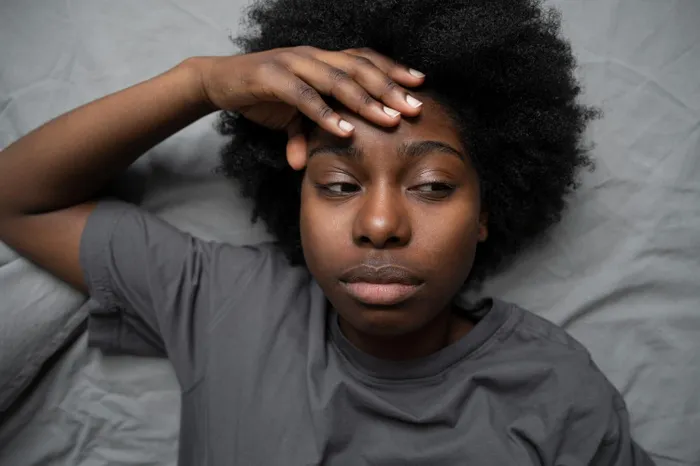Breaking the cycle: How stress and anxiety disrupt sleep and mental health

Stress and anxiety can affect your sleep.
Image: Freepik
Let’s be honest, stress and anxiety are part of life, and most of us have dealt with them at one point or another.
Whether it’s work deadlines, relationship struggles, school pressures, or an overwhelming to-do list, they always seem to show up when we least expect, or want them.
And often, the worst time they hit is right when you're trying to fall asleep.
If you’ve ever stared at the ceiling late at night, your mind racing with “what if” thoughts, you’re definitely not alone.
When stress and anxiety take over, sleep often suffers, and once that cycle starts, it can be hard to stop.
Why is sleep important?
Sleep isn’t just about recharging your batteries.
It helps your body repair itself, boosts your immune system, and keeps your brain sharp.
Emotionally, it helps you manage your mood, handle stress better, and just feel more balanced overall.
When you’re not sleeping well, everything feels so much harder.
How stress keeps you up at night
When you're stressed, your body kicks into “survival mode.”
It pumps out hormones like cortisol and adrenaline, which keep you alert and ready for action.
This is the last thing you want when you’re trying to fall asleep.
That’s why stress can leave you tossing and turning, unable to drift off or waking up way too early.
How anxiety steals your sleep
Anxiety takes things to another level.
It's not just about being worried, it’s the overthinking, the what-ifs, and the inability to shut your brain off at night.
Anxiety can cause physical symptoms like a racing heart or tight muscles, which makes relaxing even harder.
Over time, the fear of not sleeping can become its source of anxiety, which doesn’t help either.
A vicious cycle
Bad sleep makes you more anxious and stressed.
More stress and anxiety make it harder to sleep.
It’s a frustrating cycle that can seriously mess with your mental health.
You might feel more irritable, overwhelmed, or even depressed.
Your brain needs good sleep to manage all those emotions, and when you don’t get it, everything feels harder to handle.
What can you do about it?
Thankfully, there are ways to break the cycle. Here are some simple tips that can really help.
- Try relaxation techniques: Deep breathing, meditation, or even just some light stretching before bed can help calm your mind.
- Stick to a sleep schedule: Going to bed and waking up around the same time every day helps set your body’s internal clock.
- Make your space sleep-friendly: Keep your room cool, dark, and quiet. Avoid your phone or TV right before bed. Yes, that means no scrolling TikTok until your eyes burn!
- Watch the caffeine and alcohol: Cut back on coffee in the afternoon, and try not to drink alcohol close to bedtime. Both can mess with your sleep.
- Talk to someone: If your stress or anxiety is feeling like too much, or you just can’t seem to sleep no matter what you try, it’s okay to ask for help. Therapy, especially cognitive behavioural therapy for insomnia, can make a big difference.
Stress and anxiety are part of life, but they don’t have to control your nights.
When you understand how they impact your sleep and take steps to manage them, you can start sleeping better and feeling more like yourself again.
Prioritising sleep isn’t lazy or selfish, it’s one of the best things you can do for your mental health.
Get your news on the go, click here to join the IOL News WhatsApp channel.
IOL Lifestyle
Related Topics: